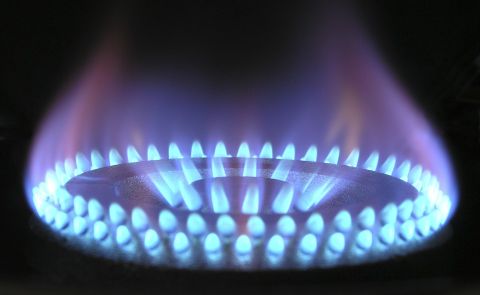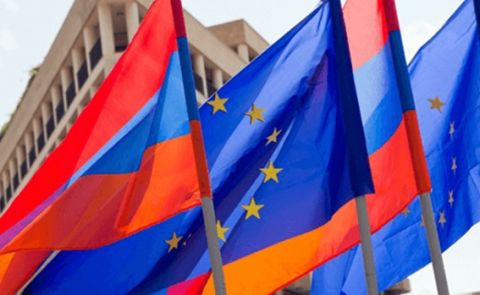
Covid-19 measure update in Armenia

On 19 April, Armenian authorities sealed off the town of Maralik and the village of Dzokarap after 18 employees of a local hospital tested positive for coronavirus, reported the Armenian Radio Free Europe.
The Maralik hospital was temporarily shut down the day before after the 18 coronavirus cases were confirmed among its 61-member staff. Shirak’s governor, Tigran Petrosyan, said the infected medical personnel were taken to a hospital in the provincial capital Gyumri while their colleagues were placed under quarantine. The authorities also ordered more than 40 relatives and friends of the infected medics to self-isolate.
Armenia’s Deputy Prime Minister Tigran Avinyan, who oversees the enforcement of coronavirus-related state of emergency regulations in Armenia, ordered the police to ensure that people can enter or leave the two adjacent communities only in cases of extreme necessity or for the purpose of agricultural work until 25 April. The ban also does not cover trucks supplying food, fuel and medicine to the town of 5,000 residents located about 100 kilometers northwest of Yerevan.
On 18 April, Avinyan also forbade the opening the coffins of those who have died because of COVID-19 in Armenia at any stage of transportation or burial of bodies. It is noted that in the event of the death of a person with a confirmed diagnosis of coronavirus disease, an autopsy is not performed. The decision stated that the funeral should be organized as soon as possible, no later than 48-72 hours after the death, and it also indicates the need to avoid crowded mourning ceremonies. The decision also stated that there is no need to burn the things of the deceased.
Armenia’s Prime Minister Nikol Pashinyan reaffirmed on 17 April his government’s plans to gradually reopen more sectors of Armenia’s economy, again insisting that the coronavirus epidemic in the country is “manageable.” He cautioned, however, that the “return to normal life” will be conditional on employers and other Armenians taking necessary precautions against the highly contagious virus. “Accordingly, our strategic objective is as follows: to make sure that the number of infected people is as small as possible and bearable for the healthcare system,” he stated. “On the other hand, we cannot be endlessly locked down and live in an endless quarantine or state of emergency. Therefore, our strategic objective is to live parallel to coronavirus or alongside it, if necessary. We need to use the upcoming period of emergency rule for acquiring necessary skills to do just that,” he added.
The United States announced $600,000 in additional assistance to Armenia aimed at combating the coronavirus epidemic. “These funds will build on the $1.1 million in support announced last week that will help: prepare laboratory systems, activate case-finding and event-based surveillance, support technical experts for response and preparedness and bolster risk communication,” the U.S. Agency for International Development said in a statement.
The current tally of infected persons in Armenia stands at 1401, with 24 reported deaths.
Opposition parliamentarians suggest further economic measures to combat Covid-19
On 20 April, the parliamentarian from the opposition Prosperous Armenia party Mikael Melkumyan proposed three additional programs to the government in order to combat the economic consequences of Covid-19. “The first [program] implies support of workers with daily pay. In one way or another, the government has provided some assistance to some of them. Second, we proposed the introduction of a special regime for taxi drivers,“ he said. The third proposed program, according to Melkumyan, applies to single pensioners and people with disabilities. Under this program, the difference between the received pension/allowance and the minimum wage are offered to be paid to the latter. Melkumyan also said that his faction has proposed a bill introducing tax holidays and a draft ban on the seizure of property of citizens with debts of up to 500 thousand drams (about $ 1,033).
Another Prosperous Armenia lawmaker, Naira Zohrabyan, called on the government to cut university tuition fees by 25%. She said that the parents of many students are not working because of the nationwide lockdown, which in turn is affecting thousands of students.
The leader of the opposition party Bright Armenia Edmon Marukyan suggested that the government distribute 5-10% of GDP as free assistance to citizens of the country. According to him, the bulk of 150 billion drams of government assistance will be returned in the form of taxes. “The government is subsidizing only interests on loans, and together with social support they do not reach 1% of the country's GDP,” Marukyan said.
He argued that instead of adopting a string of anti-crisis measures the government should have adopted two- economic and social support. “We believe that it’s not too late to provide state support to citizens. Otherwise, it will lead to a great social and economic collapse,” he said. “The consequences of the coronavirus shock [are] a sort of test for the government and in my opinion, it is failing it,” he added.
The Armenian government has so far designed 14 measures to counteract the economic consequences of the coronavirus crisis. Six have been designed to show support to agriculture, tourism, SMEs, microbusiness and other industries, and eight to show support to various groups of the population.
See Also

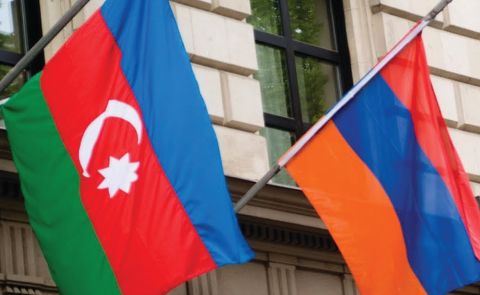
Armenia Reaffirms Peace Deal Readiness, Criticizes Azerbaijan's Preconditions

ING's Forecast for Azerbaijan Highlights Oil Price Risks and Gold Export Opportunities
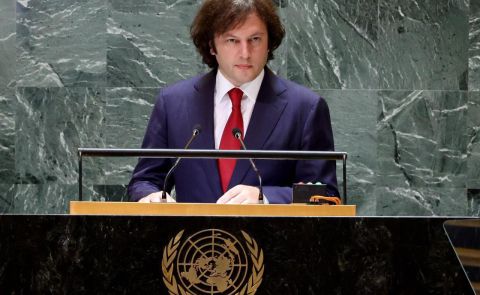
Georgian PM to Attend European Political Community Summit
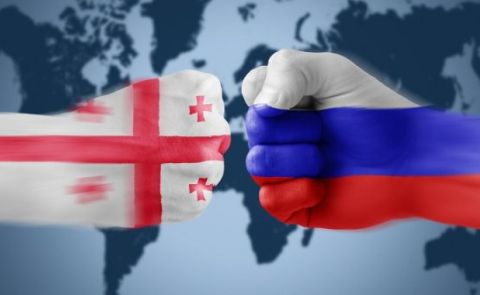
Putin Urges Georgia to Uphold Friendship Traditions, Signature Collection Begins in Tbilisi to Restore Ties
